Denmark is not only the world’s happiest country, but also the least corrupted, its Ambassador to Thailand tells Maxmilian Wechsler
| TWO minutes’ walk from hectic Sathorn Road in Bangkok is a peaceful oasis whose lush gardens are home to a variety of birds and toweering trees. This is the compound of the Royal Danish embassy, home and office of Denmark’s ambassador to Thailand, H.E. Mr Mikael Hemniti Winther. The relaxed atmosphere exudes friendliness. This should come as no surprise, as a World Happiness Report 2012 published by the Earth Institute of Columbia University and commissioned by the United Nations rated Denmark as the happiest country in the world. “I think that one of the reasons that Danish people are happy is that we live in a society that is considered fair and safe for most of its people,” notes the ambassador. “There is not a huge difference between the haves and the have-nots and therefore not so much frustration and anger. |
“If you feel that you are in a safe and pleasant environment where you are not forced to look over your shoulder wherever you are, maybe that gives you a happy and pleasant life.”
Then he added diplomatically: “But really the term ‘happy’ is so difficult to measure, so I am not so sure whether you could really say that Danes are much happier than other people.”
By any measure, though, Denmark is obviously doing something right. Apart from being happy, it’s also the least corrupted country in the world, according to Transparency International Corruption Perception Index 2012. After Denmark comes Finland, and New Zealand. Thailand holds 88th place, with Somalia in last.
The ambassador admitted he is proud of the designation.
“I think it comes with a long tradition of not having a politicized bureaucracy, one which stays in place even if the ‘colour’ of the government changes. We also have some strict measures for control and transparency in our government administration, and it is not possible to avoid the scrutiny as the rules are applied for everyone.
“As a powerful government official you are subject to the same controls, independently of your level.
“The press is also ‘on the case,’ and they have access to information which the government must submit if asked for. Denmark also has a good education system, health care and social benefits.
So the people pay high taxes, but they also require value for money and they will be after the government if there is misuse or waste.”
Then he added diplomatically: “But really the term ‘happy’ is so difficult to measure, so I am not so sure whether you could really say that Danes are much happier than other people.”
By any measure, though, Denmark is obviously doing something right. Apart from being happy, it’s also the least corrupted country in the world, according to Transparency International Corruption Perception Index 2012. After Denmark comes Finland, and New Zealand. Thailand holds 88th place, with Somalia in last.
The ambassador admitted he is proud of the designation.
“I think it comes with a long tradition of not having a politicized bureaucracy, one which stays in place even if the ‘colour’ of the government changes. We also have some strict measures for control and transparency in our government administration, and it is not possible to avoid the scrutiny as the rules are applied for everyone.
“As a powerful government official you are subject to the same controls, independently of your level.
“The press is also ‘on the case,’ and they have access to information which the government must submit if asked for. Denmark also has a good education system, health care and social benefits.
So the people pay high taxes, but they also require value for money and they will be after the government if there is misuse or waste.”
Diplomatic biker
A tour of the embassy compound yields a surprise. Parked in a garage is a Honda Transalp 700cc motorcycle belonging to Mr Winther – probably the only motorcycle in Thailand with diplomatic plates.
“I am a devoted biker. As soon as I get to the weekend I try to take it out and really enjoy getting out in this wonderful country. There are some very nice spots in neighboring provinces,” said Mr Winther. “Recently I rode with several other big bikes to Phnom Penh from Bangkok in an event that was quite well covered by the media. It was to help my wife Ratanawadee with her work.”
Mrs Winther, Country Director for Asia Injury Prevention Foundation, an American NGO which works to promote the use of crash helmets (particularly among children), is well known within the diplomatic community.
“Khun Ratanawadee is a Canadian citizen born in Thailand. She has lived most of her life outside Thailand but I met her in Bangkok. I was posted here in 1995-1998 as the first secretary of the Danish embassy. We met at a ball organized by the Australian embassy where she was working as a head of the education department of the embassy. The ball was held at the old Siam Intercontinental Hotel, where Siam Paragon now stands.
“I came to Thailand for the first time in 1983 on a classic backpacker trip (six months on a budget) to Indonesia, Thailand and India,” Mr Winther explained. “It was an experience that changed my life forever and made me decide I should get an education in a field that would give me a chance to work abroad.
“I became ambassador to Thailand on January 1, 2010 and I believe and hope that my term will be about five years. I am also ambassador to Cambodia and Myanmar. My duty as ambassador to Myanmar is demanding as there is a lot of attention from the Danish government to Myanmar.”
A tour of the embassy compound yields a surprise. Parked in a garage is a Honda Transalp 700cc motorcycle belonging to Mr Winther – probably the only motorcycle in Thailand with diplomatic plates.
“I am a devoted biker. As soon as I get to the weekend I try to take it out and really enjoy getting out in this wonderful country. There are some very nice spots in neighboring provinces,” said Mr Winther. “Recently I rode with several other big bikes to Phnom Penh from Bangkok in an event that was quite well covered by the media. It was to help my wife Ratanawadee with her work.”
Mrs Winther, Country Director for Asia Injury Prevention Foundation, an American NGO which works to promote the use of crash helmets (particularly among children), is well known within the diplomatic community.
“Khun Ratanawadee is a Canadian citizen born in Thailand. She has lived most of her life outside Thailand but I met her in Bangkok. I was posted here in 1995-1998 as the first secretary of the Danish embassy. We met at a ball organized by the Australian embassy where she was working as a head of the education department of the embassy. The ball was held at the old Siam Intercontinental Hotel, where Siam Paragon now stands.
“I came to Thailand for the first time in 1983 on a classic backpacker trip (six months on a budget) to Indonesia, Thailand and India,” Mr Winther explained. “It was an experience that changed my life forever and made me decide I should get an education in a field that would give me a chance to work abroad.
“I became ambassador to Thailand on January 1, 2010 and I believe and hope that my term will be about five years. I am also ambassador to Cambodia and Myanmar. My duty as ambassador to Myanmar is demanding as there is a lot of attention from the Danish government to Myanmar.”
| Life in the Green Zone Mr Winther spoke of his previous two-year posting in Iraq as the Danish ambassador. Coming to Thailand after the high-security atmosphere of Baghdad’s Green Zone was like “night and day.” “It was a bit of a tough spot, where I could only move with a number of body guards as I was what they called a ‘high value target.’ The bodyguards were from the Danish Special Forces and guarded me 24 hours a day. I couldn’t walk on the street and when I travelled outside the capital it was in a very heavily armed motorcade. “I was also surrounded by bodyguards inside the Green Zone. Even when I walked inside the US embassy compound, where there are fitness and other facilities, I had to have bodyguards with me. So my activities and movements there were very limited, it was like being in confinement,” Mr Winther said. “In an addition, there were many incidents close to where I stayed, like rockets being fired at the Green Zone. Of course, these attacks weren’t aimed at me personally, but I felt very fortunate my quarters weren’t hit by the militants as our embassy is right beside the US embassy inside the Green Zone. “Sometimes when the US embassy had high-profile visitors, for example when the US vice president came several times, the militants would use rockets trying to hit whatever they could inside the Green Zone. They weren’t very precise, so these explosives were landing everywhere. It was psychologically scary. I knew it was highly unlikely that I would be hit, but the feeling that it could happen at any time was stressful. “That assignment gave me some personal challenges, but also once-in-a-lifetime experiences that I would not have missed. However, I was very happy to leave and come to Thailand when my assignment was over.” Point man for Denmark “THE embassy has been at this location since 1955. It is a wonderful spot in Sathorn Soi 1, quiet and peaceful in the middle of the busy financial district. We have 34 people working here. My duties are really to manage the embassy and get the good team working together. So there are lots of management issues as well as the representative issues as the point man for Denmark in Thailand. “Denmark has very long and very close relations with Thailand. We are both kingdoms and the two royal families have traditionally had close relations and visited each other. Our two countries cooperate in many areas, for example education and the use of sustainable energy resources and design. There are many cultural exchanges between our two countries within the spheres of music, theater and other art forms.” | About Denmark |
The ambassador explained that the embassy has five departments, with the busiest being consular affairs. “In fact, our embassy in Thailand has the highest number of consular cases of any Danish embassy abroad. These involve mainly helping our citizens when they have difficulties. These arise from a combination of Thailand being an alluringly easy country on the surface, but when you go beneath it there is a lot of trouble to be found, especially if you are a man and forget about your normal sensible thinking. When they meet the Thai culture and ways of life, some of our people are not prepared. So this is the most important work we are doing in Thailand.
“We have about 140,000 Danish tourists coming to Thailand yearly, and the great majority of them have wonderful experiences. But others get into some kind of situation where they need our help.
“I believe that Thailand is the most popular tourist destination for Danish people outside Europe and for that reason we also have Honorary Consulates in Thailand: in Pattaya, Phuket and also one in Bangkok,” the ambassador said.
Mr Winther said that there around 6,000 or 7,000 Thai citizens in Denmark, but he was less sure of how many Danes are living here as there are no records. “I would assume between 1,500 and 2,000,” he said. “Also requiring the embassy’s attention are the many thousands of Thais wishing to travel to Denmark. We assist them with visas and other things.”
On the subject of trade between the two nations, Mr Winther said: “There are more than 70 Danish companies in Thailand and therefore quite strong commercial bonds. Our export promotion department helps Danish companies who wish to do business in Thailand, Myanmar or Cambodia. That is a substantial task for the embassy as we, unlike many other countries, have a significant duty to help our people conduct business here.
“Actually I have a performance contract with the Danish Ministry of Foreign Affairs that stipulates that I have to be able to devote a certain amount of working hours to Danish enterprises (which they pay for as a service fee), and that can make the job tougher.
“We have some major Danish companies present in Thailand, like the shoemaker ECCO. They have a very big factory in Thailand. It is very famous brand and the shoes leave a footprint with the name, so everywhere customers go it says ECCO – a free advertisement. The factory here is a major production facility and the shoes are exported and sold locally as well.
“Then we have Pandora, which is a big jewelry company, as well as the Royal Copenhagen, which is very old traditional porcelain company. They have a big factory here as well. Then we have Maersk which is, of course, the biggest shipping company in the world.”
Mr Winther noted that since he has been here there have been official visits to Thailand by Danish Prime Minister Helle Thorning-Schmidt and Minister for Trade and Investments Pia Olsen Dyhr, both women, and recently the Danish Minister of Foreign Affairs, Villy Søvndal, who met with his Thai counterpart and discussed a number of issues between the two countries. In the spring of 2013 two Danish parliamentary committees will come to Thailand.
“We have about 140,000 Danish tourists coming to Thailand yearly, and the great majority of them have wonderful experiences. But others get into some kind of situation where they need our help.
“I believe that Thailand is the most popular tourist destination for Danish people outside Europe and for that reason we also have Honorary Consulates in Thailand: in Pattaya, Phuket and also one in Bangkok,” the ambassador said.
Mr Winther said that there around 6,000 or 7,000 Thai citizens in Denmark, but he was less sure of how many Danes are living here as there are no records. “I would assume between 1,500 and 2,000,” he said. “Also requiring the embassy’s attention are the many thousands of Thais wishing to travel to Denmark. We assist them with visas and other things.”
On the subject of trade between the two nations, Mr Winther said: “There are more than 70 Danish companies in Thailand and therefore quite strong commercial bonds. Our export promotion department helps Danish companies who wish to do business in Thailand, Myanmar or Cambodia. That is a substantial task for the embassy as we, unlike many other countries, have a significant duty to help our people conduct business here.
“Actually I have a performance contract with the Danish Ministry of Foreign Affairs that stipulates that I have to be able to devote a certain amount of working hours to Danish enterprises (which they pay for as a service fee), and that can make the job tougher.
“We have some major Danish companies present in Thailand, like the shoemaker ECCO. They have a very big factory in Thailand. It is very famous brand and the shoes leave a footprint with the name, so everywhere customers go it says ECCO – a free advertisement. The factory here is a major production facility and the shoes are exported and sold locally as well.
“Then we have Pandora, which is a big jewelry company, as well as the Royal Copenhagen, which is very old traditional porcelain company. They have a big factory here as well. Then we have Maersk which is, of course, the biggest shipping company in the world.”
Mr Winther noted that since he has been here there have been official visits to Thailand by Danish Prime Minister Helle Thorning-Schmidt and Minister for Trade and Investments Pia Olsen Dyhr, both women, and recently the Danish Minister of Foreign Affairs, Villy Søvndal, who met with his Thai counterpart and discussed a number of issues between the two countries. In the spring of 2013 two Danish parliamentary committees will come to Thailand.
Rocking in Thailand
In the final part of the interview Mr Winther responded openly to questions of a more personal nature.
“In my free time I am an active musician. I play mostly electric rock guitar, but if the occasion presents itself I also play acoustic guitar, sing if necessary and sit at the piano from time to time. I have fortunately had a chance to play with some fine musicians here in Bangkok – mostly at parties or public events, like the Red Cross Bazaar or on local TV. Recently I had a chance to play with the Thai Navy band at the Mandarin Oriental Bangkok for the celebration of the Thai Danish Chamber of Commerce. I noticed that some pictures from that event were published in your fine magazine.
“For relaxation I grab my guitar and play for myself, or if I’m lucky with some other musicians. I go out on the motorbike on weekends during the day, but also in the car to markets or restaurants, and I love going on the klongs in a boat. At home I read a lot of books (fiction) obtained in the wonderful book stores here in Bangkok. I also watch a lot of good TV series and movies.
“I travel a lot outside Bangkok, mostly to neighboring provinces but also much further away. As my wife has family here (her mother is in Udon Thani), obviously we go to a lot of places in Thailand. I have been to many, many provinces since my first arrival in Thailand.
“I really love Thailand and I love the people here. I have been stationed here twice and I have come back once every year, at a minimum, for holidays since 1998, as it is one of my favourite countries. I love the excitement of Bangkok, the variety and the fact that you can find everything in this city day and night. I love the rivers, the klongs and the countryside. I like the traditional Thai houses and the nature in the mountains and I like the coconut palms. I love the humor of the Thai people as well.
“I have not really been disappointed with anything in Thailand, but what I do not like is the conditions for pedestrians here. There are so few places to walk and people in cars do not respect or care for people who walk. The roads are ill-designed for walking. But I think that change is on the way and that more and more Thai people wish to have a better environment, to have better conditions for outdoor activities including cycling (which is very popular in my country) and to be able to walk in a natural setting.”
The ambassador’s most memorable experience in Thailand was meeting his lovely wife Ratanawadee back in 1996. They were married in 1998 in Denmark.
“My biggest achievement as ambassador is hard to pinpoint. I focused a lot in the beginning when I came here on getting the spirit of the staff in a good shape, as I could see there was a need there. I strongly believe that the management part of the ambassador’s role can hardly be exaggerated. We need to work as a team to be effective. In earlier days I sometimes felt that an ambassador could act and work as a sort of one-person army, but that is not stimulating or motivating for the staff.
“As for relations with the Thai government and people, I hope that with my language skills and open mind that I have made many friends and good relations. I speak decent Thai, some Vietnamese, although I am best trained in European languages like English, French and some German. I also studied Arabic but did not manage to keep it up as I could not really move around in Baghdad and talk with the local population.”
In the final part of the interview Mr Winther responded openly to questions of a more personal nature.
“In my free time I am an active musician. I play mostly electric rock guitar, but if the occasion presents itself I also play acoustic guitar, sing if necessary and sit at the piano from time to time. I have fortunately had a chance to play with some fine musicians here in Bangkok – mostly at parties or public events, like the Red Cross Bazaar or on local TV. Recently I had a chance to play with the Thai Navy band at the Mandarin Oriental Bangkok for the celebration of the Thai Danish Chamber of Commerce. I noticed that some pictures from that event were published in your fine magazine.
“For relaxation I grab my guitar and play for myself, or if I’m lucky with some other musicians. I go out on the motorbike on weekends during the day, but also in the car to markets or restaurants, and I love going on the klongs in a boat. At home I read a lot of books (fiction) obtained in the wonderful book stores here in Bangkok. I also watch a lot of good TV series and movies.
“I travel a lot outside Bangkok, mostly to neighboring provinces but also much further away. As my wife has family here (her mother is in Udon Thani), obviously we go to a lot of places in Thailand. I have been to many, many provinces since my first arrival in Thailand.
“I really love Thailand and I love the people here. I have been stationed here twice and I have come back once every year, at a minimum, for holidays since 1998, as it is one of my favourite countries. I love the excitement of Bangkok, the variety and the fact that you can find everything in this city day and night. I love the rivers, the klongs and the countryside. I like the traditional Thai houses and the nature in the mountains and I like the coconut palms. I love the humor of the Thai people as well.
“I have not really been disappointed with anything in Thailand, but what I do not like is the conditions for pedestrians here. There are so few places to walk and people in cars do not respect or care for people who walk. The roads are ill-designed for walking. But I think that change is on the way and that more and more Thai people wish to have a better environment, to have better conditions for outdoor activities including cycling (which is very popular in my country) and to be able to walk in a natural setting.”
The ambassador’s most memorable experience in Thailand was meeting his lovely wife Ratanawadee back in 1996. They were married in 1998 in Denmark.
“My biggest achievement as ambassador is hard to pinpoint. I focused a lot in the beginning when I came here on getting the spirit of the staff in a good shape, as I could see there was a need there. I strongly believe that the management part of the ambassador’s role can hardly be exaggerated. We need to work as a team to be effective. In earlier days I sometimes felt that an ambassador could act and work as a sort of one-person army, but that is not stimulating or motivating for the staff.
“As for relations with the Thai government and people, I hope that with my language skills and open mind that I have made many friends and good relations. I speak decent Thai, some Vietnamese, although I am best trained in European languages like English, French and some German. I also studied Arabic but did not manage to keep it up as I could not really move around in Baghdad and talk with the local population.”
Relations between Denmark and Thailand
THE establishment of formal diplomatic relations between Denmark and Thailand date back to May 21, 1858 when the “Treaty of Friendship, Commerce, and Navigation” was signed by His Majesty King Frederik VII of Denmark and His Majesty King Mongkut of Siam and His Majesty King Pinklao of Siam.
The treaty was the culmination of commercial relations between Danish and Thai traders since the beginning of the 17th century. The first recorded commercial contact between Denmark and Thailand dates back to 1620 when the Danish Vessel “Copenhagen” called on the port of Tenasserim with greetings from the Prince of Tanjore.
As one of the first results of the treaty, Denmark in 1860 established a consulate in Bangkok. The first Danish consul in Thailand was Frederick Carl Christian Købke, a former captain on a large Siamese ship and inspector in the Siamese Customs Administration. Thailand did not utilize its right to diplomatic representation until 1882 when H.S.H Prince Prisdang was appointed ambassador to Denmark.
To commemorate the 150th anniversary of Danish-Thai diplomatic relations in 2008, Danish Crown prince Frederik and his wife, Crown Princess Mary, visited Thailand.
H.E. MIKAEL HEMNITI WINTHER IN FOCUS
Date of Birth: July 5, 1960
Professional experience
2011 - present: Ambassador to Thailand, Myanmar and Cambodia
2008 - 2010: Ambassador to Iraq
2006 - 2008: Deputy Head of Department, Department for
Quality Assurance of the Development Assistance, Ministry of Foreign Affairs
2005 - 2006: Head of Section, Department for Quality Assurance of the Development Assistance, Ministry of Foreign Affairs
2001 - 2005: Counsellor and Deputy Head of Mission, Danish Embassy in Hanoi, Vietnam
1999 - 2001: Head of Division, Southeast Asia Division, Asia Department, Ministry of Foreign Affairs
1998 - 1999: Head of Section, Department of Humanitarian
Affairs, Ministry of Foreign Affairs
1995 - 1998: First Secretary, Danish Embassy in Bangkok
1994 - 1995: Head of Section, Department for UN organisations, World Bank and regional banks
1993 - 1994: Head of Section, Department for USA, Canada, Australia and New Zealand
1991 - 1993: Officer in Ministry of Agriculture
1989 - 1991: Junior Professional Officer in UNIDO/UNDP in Manila, Philippines
1987 - 1991: Officer in Ministry of Agriculture
Other experience
From 1987 - 2001, Ambassador Winther was attached for various periods to Copenhagen University and Copenhagen Business School as external Associate Professor lecturing in international economics, political science, international governance and EU-related subjects.
Date of Birth: July 5, 1960
Professional experience
2011 - present: Ambassador to Thailand, Myanmar and Cambodia
2008 - 2010: Ambassador to Iraq
2006 - 2008: Deputy Head of Department, Department for
Quality Assurance of the Development Assistance, Ministry of Foreign Affairs
2005 - 2006: Head of Section, Department for Quality Assurance of the Development Assistance, Ministry of Foreign Affairs
2001 - 2005: Counsellor and Deputy Head of Mission, Danish Embassy in Hanoi, Vietnam
1999 - 2001: Head of Division, Southeast Asia Division, Asia Department, Ministry of Foreign Affairs
1998 - 1999: Head of Section, Department of Humanitarian
Affairs, Ministry of Foreign Affairs
1995 - 1998: First Secretary, Danish Embassy in Bangkok
1994 - 1995: Head of Section, Department for UN organisations, World Bank and regional banks
1993 - 1994: Head of Section, Department for USA, Canada, Australia and New Zealand
1991 - 1993: Officer in Ministry of Agriculture
1989 - 1991: Junior Professional Officer in UNIDO/UNDP in Manila, Philippines
1987 - 1991: Officer in Ministry of Agriculture
Other experience
From 1987 - 2001, Ambassador Winther was attached for various periods to Copenhagen University and Copenhagen Business School as external Associate Professor lecturing in international economics, political science, international governance and EU-related subjects.

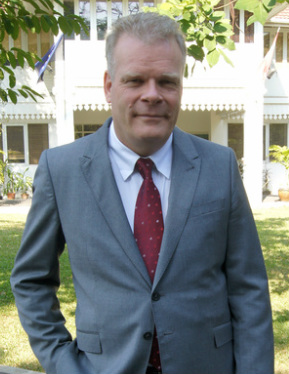
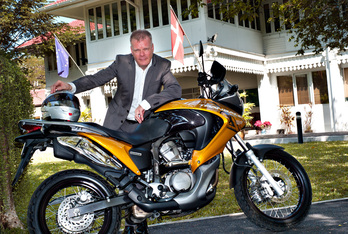
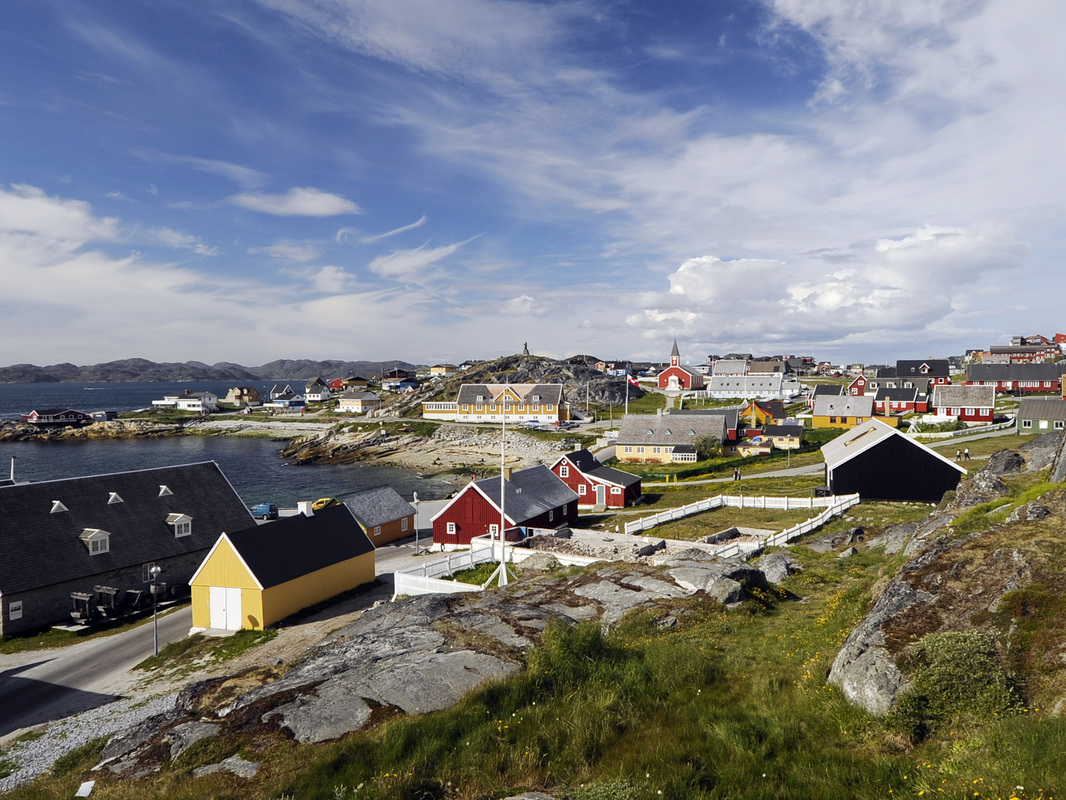
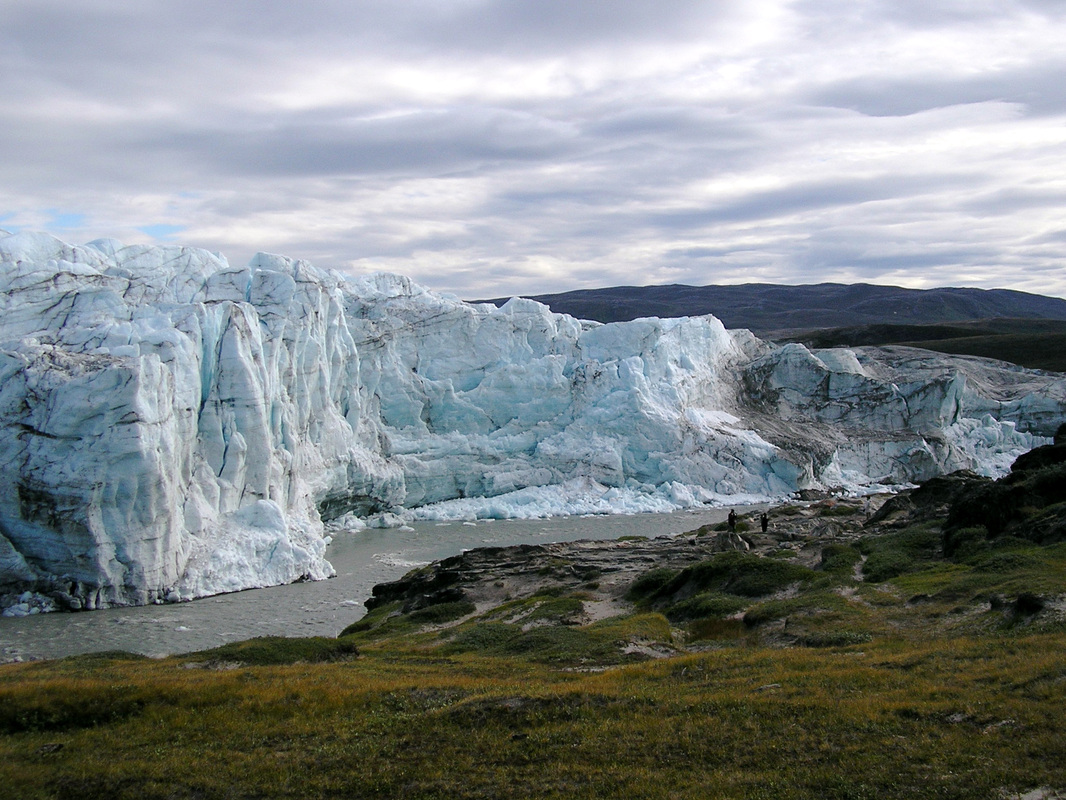
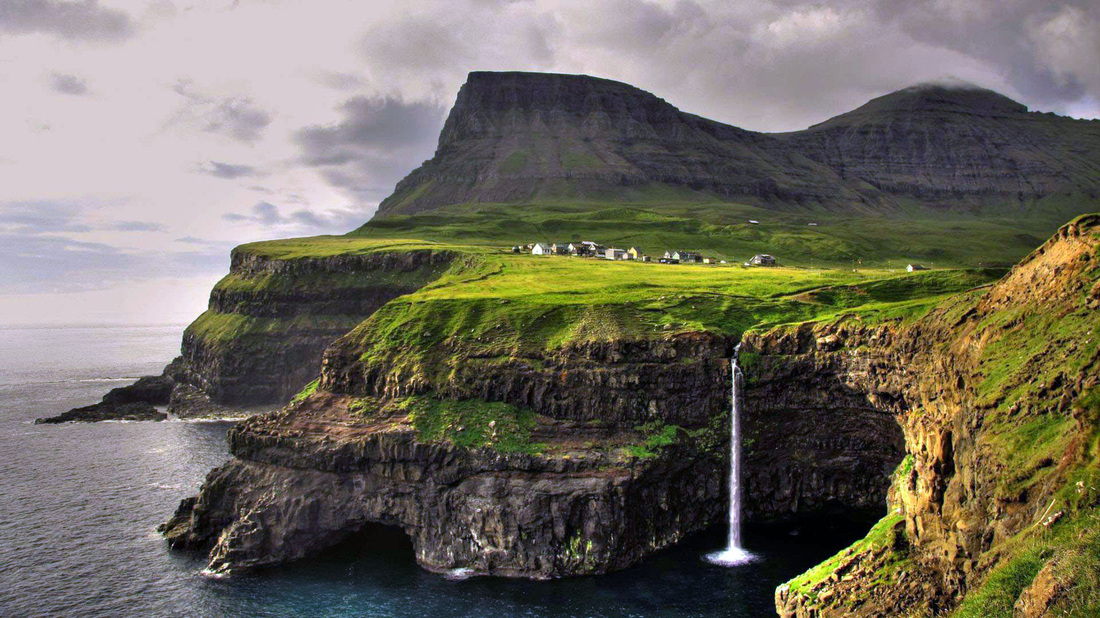
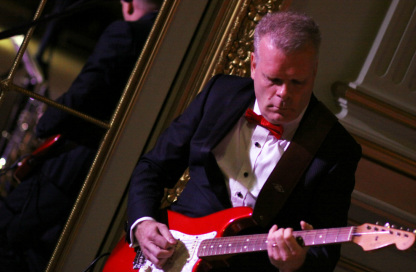
 RSS Feed
RSS Feed
















